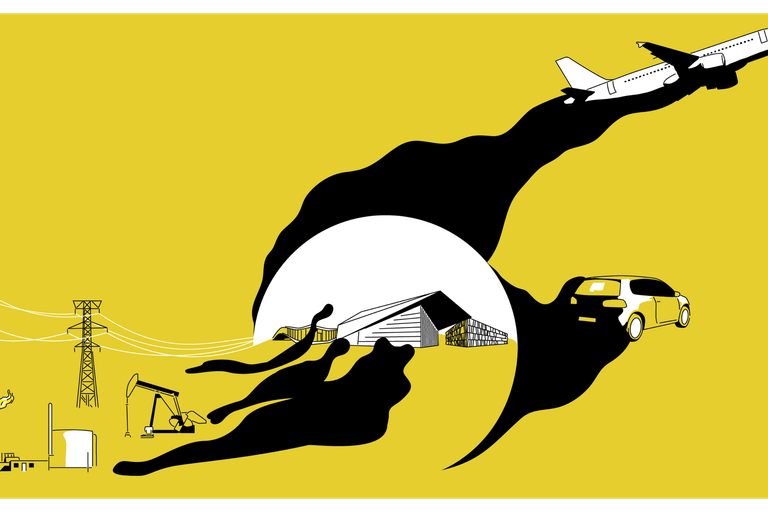Related topics

“Now that you have the support, you should be able to do more”
What is the best way to reduce greenhouse gas emissions caused by scientists travelling for business, particularly by plane? This was the issue to be discussed at the morning conference «Decarb science! But how?» ahead of the SCNAT Delegate Assembly on 24 May. The colossal scale of the problem lies in the fact that it requires a change in scientific culture. Ultimately, there are no straightforward answers: a creative, nuanced approach is what is needed.
Image: Hansjakob Fehr, 1kilo / Horizonte SNFAcademia aims to reduce its own CO₂ emissions
Researchers fly all over the world to take part in conferences and exchange ideas face-to-face. And they often do so without thinking about the impact on our climate. But if the oncologist Daniel Helbling has his way, that will soon change. We look at three initiatives from scientists who are keen to improve the sustainability of their own disciplines.




